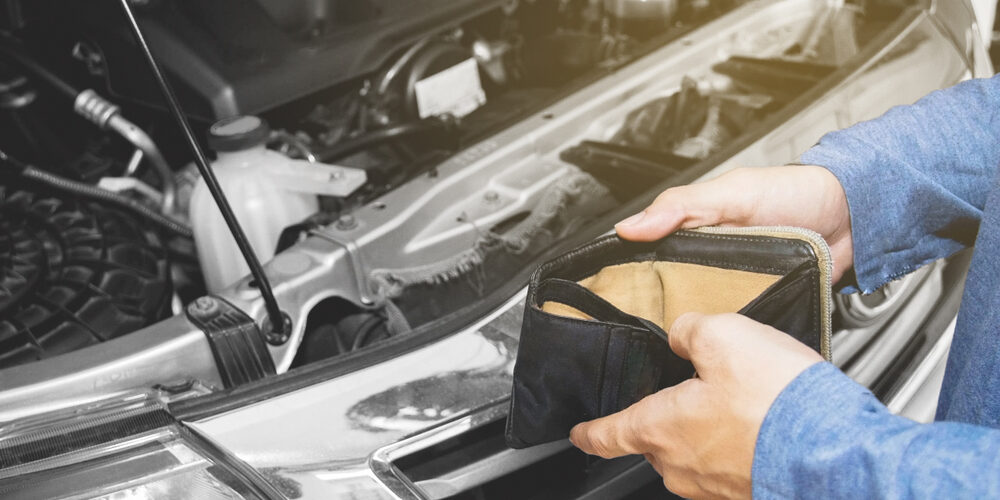What happens if you don’t maintain your car? It could develop mechanical problems that begin small but end big. Does this mean that all types of recommended car maintenance are necessary? No, and we’ll take a look at a few that you may want to skip to save cash.
Note: While these tips can save you money and time at the mechanic, do your research before making any final decisions on maintenance, as many factors are involved, such as the car’s age, condition, etc.
STOP!
Do you need a financial reset? If you owe more than $10,000 here is a debt relief resource available to help you today.
1. Using premium fuel.
You should fill up your car with the highest-octane gas available, right? Not necessarily. If you have a luxury or high-performance car, then yes, high-octane gas may not only be good, but needed for the car to run without issues. But unless your car’s manual says you need 93 octane, go with the lower recommendation. Not only will it keep your car running as intended, but it’ll keep more cash in your pocket per fill-up.
2. Buying headlight restoration kits.
Do car headlights tend to become foggy and yellow over the years? Yes. Does this mean you need a pricy headlight restoration kit so they operate correctly and look new? No.
To get the job done, look up a do-it-yourself video on YouTube. You can usually make your headlights like new with nothing more than a bit of time, sandpaper, and warm soapy water.
3. Getting frequent synthetic oil changes.
This is probably the most common maintenance move where car owners spend more money than they should.
For starters, unless you have an old vehicle, frequently tow heavy objects, or drive in extreme weather, you probably don’t need to get your oil changed every 3,000 miles. That outdated guideline was made when motor oil and cars weren’t as technologically advanced.
As for the type of oil, synthetic oil isn’t a must either unless your car carries a high-performance engine under the hood. Dealerships use this 3,000-mile synthetic oil recommendation to make as much profit as possible, when you really don’t need it.
4. Taking it to the dealership versus an independent mechanic.
Is your car still under warranty? If so, take it to the dealership so you can get service that’s covered. If not, try an independent local mechanic who will probably be a lot cheaper.
5. Paying for tune-ups.
What can a regular tune-up give you? Peace of mind knowing that someone looked over your car to see if anything was wrong. Is this service worth paying for, though?
Probably not, as modern cars have onboard computers that do the job for you. As they regularly scan for issues, car computers can tell you when something’s wrong, so you can then take it to the mechanic.
6. Getting extended warranties.
Such warranties are quite popular nowadays, as people don’t want to pay for repairs out of their own pockets. However, with an extended warranty, you may pay more for that peace of mind than you would for repairs.
Before buying an extended warranty, read the fine print. It may not cover what you think it does, making it a waste of money.





